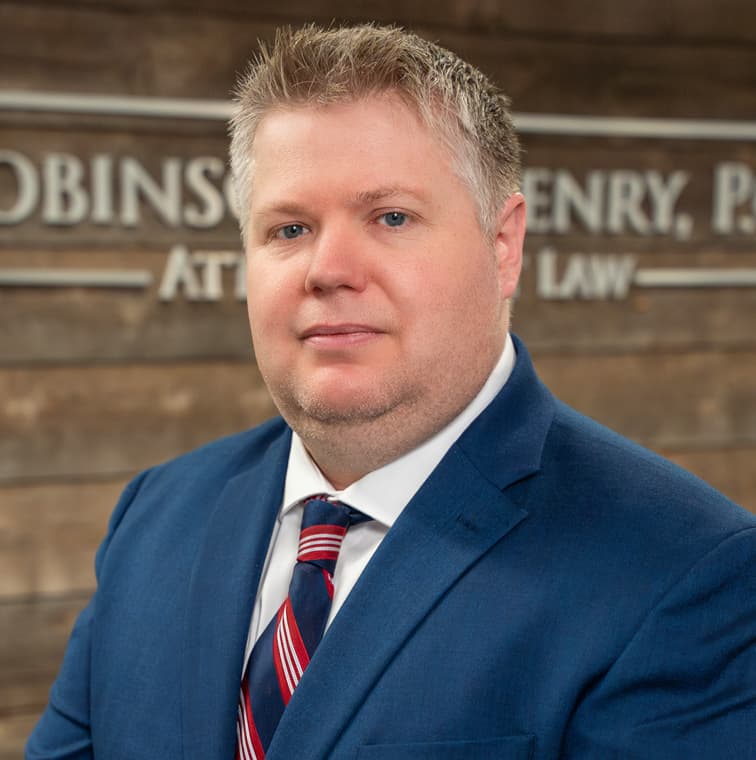Chapter 13 Debt Limit Increase Makes Option Available to More Coloradans


A Chapter 13 debt limit increase means more Coloradans will have another bankruptcy option. U.S. President Joe Biden signed into law the Bankruptcy Threshold Adjustment and Technical Corrections Act which benefits individuals and the owners of small businesses.
This short article discusses the recent increased Chapter 13 debt limit and whether you may be a good candidate for this kind of bankruptcy.
Get Out From Under Your Debt
The Chapter 13 debt limit increase allows more individuals to get out from under overwhelming debt. Whether you’ve been ineligible for Chapter 13 bankruptcy in the past or you’re considering it for the first time, Robinson & Henry’s Bankruptcy Team will review your debt to determine if Chapter 13 is the right path for you. Call (303) 688-0944 to set up a case assessment, o lláme al (303) 688-0944 para hablar con alguien en español.
The Basics of Chapter 13 Bankruptcy
Chapter 13 bankruptcy allows individuals who have enough steady income to pay down their debts over time. Chapter 13 is also an option for small business owners who file for Chapter 13 in their name — not their business’. (Chapter 13 is for personal bankruptcy only.)
In Chapter 13 bankruptcy, your debt is reorganized and paid off in three to five years. In some circumstances, you may even be able to discharge any unpaid debt that’s left at the end of your payment plan. Our bankruptcy team can discuss with you whether eliminating some of your debt may be possible.
In addition to being able to show you earn enough money to begin a repayment plan, you also can only have a limited amount of debt to qualify for Chapter 13 bankruptcy.
Chapter 13 Debt Limit Increase
The Bankruptcy Threshold Adjustment and Technical Corrections Act increases the Chapter 13 debt limit to $2.75 million. It also allows both secured and unsecured debt to count towards the increased debt limit. Previously, each type of debt had its own limit.
(e) Only an individual with regular income that owes, on the date of the filing of the petition, noncontingent, liquidated debts of less than $2,750,000 or an individual with regular income and such individual’s spouse, except a stockbroker or a commodity broker, that owe, on the date of the filing of the petition, noncontingent, liquidated debts that aggregate less than $2,750,000 may be a debtor under chapter 13 of this title. 11 USCS § 109 (e)
Secured and Unsecured Debts
Unsecured debt is not backed by collateral. So, for instance, your credit card debt is an unsecured debt. Personal loans and medical bills are also unsecured debts.
Secured debt is backed by collateral. Think car loans and mortgages.
The Chapter 13 Debt Limit Increase Has an Expiration Date
The $2.75 million debt limit ends on June 21, 2024 and reverts back to the previous limits if Congress does not extend the increased limit or make it permanent. Previously, Chapter 13 debtors could have $419,275 in unsecured debts and $1,257,850 in secured debts.
Some of the bill’s proponents are encouraged the newly-increased debt limit will continue beyond 2024 due to the bipartisan support it received.
Advantages of Chapter 13 Bankruptcy
Unlike a Chapter 7 bankruptcy, Chapter 13 protects your personal property. You won’t lose your home to foreclosure if you file for Chapter 13. This type of bankruptcy also allows you to pay back missed car payments so you don’t lose your transportation.
Chapter 13 has many benefits, including stopping creditors from harassing you.
Am I a Good Candidate for Chapter 13 Bankruptcy?
Individuals who are a good fit for Chapter 13 bankruptcy often have too much disposable income to qualify for a Chapter 7 bankruptcy, or perhaps the person filed for Chapter 7 within the past eight years. That would prohibit them from filing Chapter 7 again so soon.
Other factors that could make you a good candidate for Chapter 13 are:
your home is headed for foreclosure
your car is at risk of being repossessed
you have sizable equity in a small business or other assets
you have a lot of taxes that can’t be discharged through bankruptcy
Find Out if the Chapter 13 Debt Limit Increase Could Help You
The decision to file for bankruptcy is never easy. Many people feel like they’ve somehow failed if they file. Others are embarrassed to seek help for unmanageable debt. Don’t let your debt spiral further out of control. Our compassionate, non-judgmental Bankruptcy Team is here to help you find the right debt resolution for your circumstances. Let’s get your debt under control together. Call (303) 688-0944 to schedule a case assessment, o lláme al (720) 359-2442para hablar con alguien en español.